
GOP, advocacy groups submit changes to legislative district maps in court
By PETER HANCOCK
Capitol News Illinois
phancock@capitolnewsillinois.com
SPRINGFIELD – Plaintiffs in three lawsuits challenging the new legislative district maps that Democrats pushed through the General Assembly earlier this year have submitted their proposed changes, which would create more Latino- and Black-majority districts in Cook County and the Metro East region.
The latest filings, submitted to a three-judge federal court panel Wednesday night, will be the subject of a combined hearing that is tentatively set for the week of Dec. 6, although exact dates have not yet been announced.
Along with the proposed new maps, the filings also include written testimony of expert witnesses and arguments as to why the plaintiffs believe the approved maps are unconstitutional and violate the federal Voting Rights Act of 1965.
The plaintiffs include the two top Republican leaders in the General Assembly, Sen. Dan McConchie, of Hawthorn Woods, and Rep. Jim Durkin, of Western Springs, who hope to use the case to chip away at the Democrats’ current supermajorities in both the Illinois House and Senate.
Another set of plaintiffs includes a group of Chicago-area Latino voters represented by the Mexican American Legal Defense and Educational Fund, or MALDEF.
The third set of plaintiffs includes the East St. Louis branch of the NAACP, which argues that Black areas in and around East St. Louis that could have made up a Black-majority district were deliberately broken up and spread across separate House districts in order to protect two white incumbent Democrats.
All three of the suits name House Speaker Emanuel “Chris” Welch, Senate President Don Harmon and the Illinois State Board of Elections, along with its individual members, as defendants. They seek an order to block ISBE from implementing the maps that Gov. JB Pritzker signed into law Sept. 24 and to adopt the new maps that they have submitted to the court.
“The September Map violates Section 2 of the Voting Rights Act of 1965 … by diluting the votes of minority citizens and by preventing such citizens from participating equally in the political process and having an opportunity to elect candidates of their choice,” attorneys for the GOP plaintiffs argued. “Among other problems with the September Map, the drafters committed a fundamental error by falsely assuming there is no racially polarized voting in Illinois and failing to properly consider race and ethnicity when drawing the districts in the map as required by the VRA.”
All three sets of plaintiffs rely heavily on a 1986 U.S. Supreme Court precedent from North Carolina, Thornburg v. Gingles, which set out three factors needed to invalidate legislative district maps on the grounds of racial discrimination.
Under that standard, plaintiffs must show that the minority groups at issue are sufficiently large and geographically compact to constitute a majority in a single-member district; that the minority groups are politically cohesive; and that the majority votes sufficiently as a bloc such that it can usually defeat the minority’s preferred candidate.
GOP proposal
During legislative debates over redistricting, Republicans declined to offer their own map proposals, arguing that they believed redistricting should be done by an independent commission rather than elected officials who have a direct interest in the outcome.
They initially sued in June, after lawmakers passed their first redistricting plan using population estimates instead of official U.S. Census numbers, hoping that by invalidating those maps they could trigger a provision in the Illinois Constitution that hands the process to a bipartisan commission if no legislatively-approved map is “effective” by June 30 in the year following a decennial census.
But even though the three-judge panel ruled that the June maps were unconstitutional, the judges said the General Assembly was given a “second bite at the apple” by coming back for a special session in late August and redrawing the maps using official census data.
The panel then instructed all of the plaintiffs to explain why they believed the September maps are unconstitutional and to submit their proposed remedies.
In response to that directive, lawyers for the GOP lawmakers submitted their arguments and proposed maps Wednesday.
“We submitted a proposal that fixes specific constitutional problems with the current map that had only served to keep entrenched incumbents in power,” Sen. Jason Barickman, R-Bloomington, chair of the Senate Republican caucus said in a statement Thursday. “Democrats led by Governor Pritzker had only one thing in mind when drawing their map – protecting politicians at the expense of the people of Illinois.”
Like the MALDEF plaintiffs, Republicans argue that even though Illinois lost population overall in the 2020 census, the Latino population grew by more than 300,000, mainly in Cook County and the surrounding collar counties.
Despite that, the maps that Democrats drew during a special session in August actually reduce the number of Latino-majority districts to just four.
And, like the NAACP plaintiffs, they argue that the September maps unfairly break up the Black population in the Metro East region when it is possible to create a compact Black-majority district.
The proposed GOP maps would create four House districts in northern Cook County where Latinos make up a majority of the citizen voting age population, seven Latino-majority districts in southern Cook County and one district in nearby Aurora, District 50, where Latinos make up slightly less than half the voting age population but would still have an opportunity to elect a Latino candidate.
Their plan would also create a Black-majority House district centered in East St. Louis.
Their proposed map would reconfigure House Districts 3, 4, 39 and 77, primarily in Chicago’s northwest side and neighboring suburbs like Franklin Park and Melrose Park. Other districts around those proposed Latino districts would be adjusted so they would be substantially equal in population, but otherwise would be similar to their configuration in the September maps.
In southern Cook County, the GOP map would reconfigure House Districts 1, 2, 21, 22, 23, 24 and 32, all in Chicago’s southwest side and adjacent suburbs such as Berwyn, Cicero, and Burbank.
In the Metro East area, the GOP map would reconfigure House Districts 112, 113 and 114 so that District 114, currently represented by Democrat LaToya Greenwood, of East St. Louis, would be a majority-Black district.
MALDEF proposal
In their filing, the MALDEF plaintiffs argue that there is a long history of anti-Latino discriminatory practices in Illinois elections, particularly in Cook County, that have affected their ability to register, vote, “or otherwise participate in the democratic process.”
Those have included such things as gerrymandered districts to dilute Latino voting strength, lengthy residency requirements for voting in some jurisdictions, voter intimidation and harassment at the polls, and overt and subtle racial appeals in political campaigns.
They also cite an expert witness, University of Wisconsin political science professor Jacob Grumbach, who says eligible Latino voters in Illinois are substantially less likely to register to vote than members of other racial or ethnic groups and that the gap between Latino and non-Hispanic white registration in Illinois is above the average of other states.
Latinos now make up 11.2 percent of Illinois’ population, the MALDEF attorneys argue, but the maps enacted in September contain only four out of 118 House districts with majorities of Latino citizen voting age populations, and only two of 58 Senate districts
Their proposal focuses exclusively on southwest Chicago and its adjoining suburbs. It would create a total of 10 Latino-majority House districts, Districts 1, 2, 3, 4, 21, 22, 23 and 24 – and four Latino-majority Senate districts – Districts 1, 2, 11 and 12.
NAACP proposal
In the Metro East area, the NAACP argues that there has been a long history of racial discrimination against Blacks in East St. Louis and surrounding communities since Blacks began moving there in the early 20th century in search of industrial jobs.
That culminated in race riots in 1917 which led to the murder of “an untold number of Black men and women.”
Over the past 10 years, they note, the region has seen a “seismic loss” of population and a shift of its Black population out of East St. Louis and into surrounding suburbs, resulting in increasingly competitive races in some districts.
Their filing focuses on three House districts – the 112th, a highly competitive district currently held by Democratic Rep. Katie Stuart, of Edwardsville; the 113th, a safe Democratic district currently held by Rep. Jay Hoffman, of Swansea; and the 114th, currently held by Democrat LaToya Greenwood.
In a move they say was designed solely to protect Stuart and Hoffman, the NAACP argues that Democrats in the General Assembly moved a large number of Black voters, who tend strongly to vote Democratic, out of Hoffman’s district and into Stuart’s. They then replaced those voters by moving a large number of Black voters out of Greenwood’s district back into Hoffman’s, and then moved a large number of mostly white voters from various other districts into Greenwood’s.
According to their filing, the move “ultimately lessened the election prospects of the only Black state representative elected to the legislature from the entire Metro East area or even Southern Illinois, all in order to bolster the prospects of a white incumbent in nearby district HD 112.”
Their proposal would reconfigure all three of those districts in order to make the 114th District a Black-majority district.
Capitol News Illinois is a nonprofit, nonpartisan news service covering state government and distributed to more than 400 newspapers statewide. It is funded primarily by the Illinois Press Foundation and the Robert R. McCormick Foundation.
Local News
Sorry, we couldn't find any posts. Please try a different search.
Neighbors
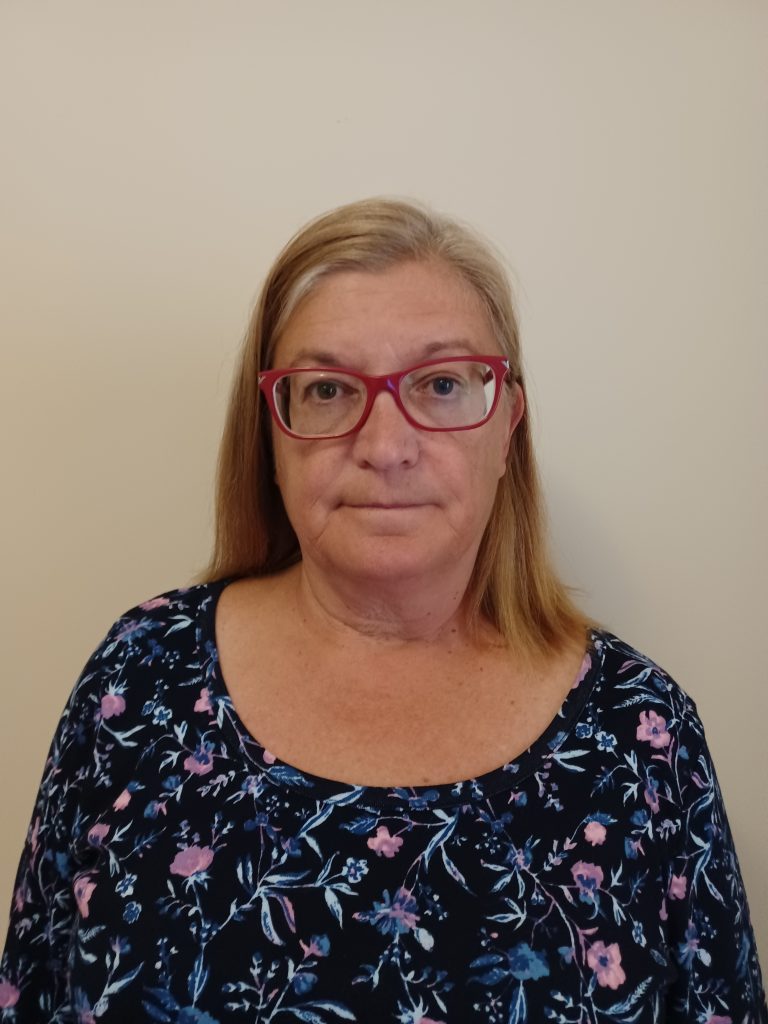
A simple idea for Earth Day
Spread the love. By Mary Stanek Your correspondent in Archer Heights and West Elsdon 3808 W. 57th Place • (773) 517-7796 . Moving right along through April, as the days get longer and nicer, time will start to go by faster. We have Earth Day on April 22 and the start of Passover at sunset.…
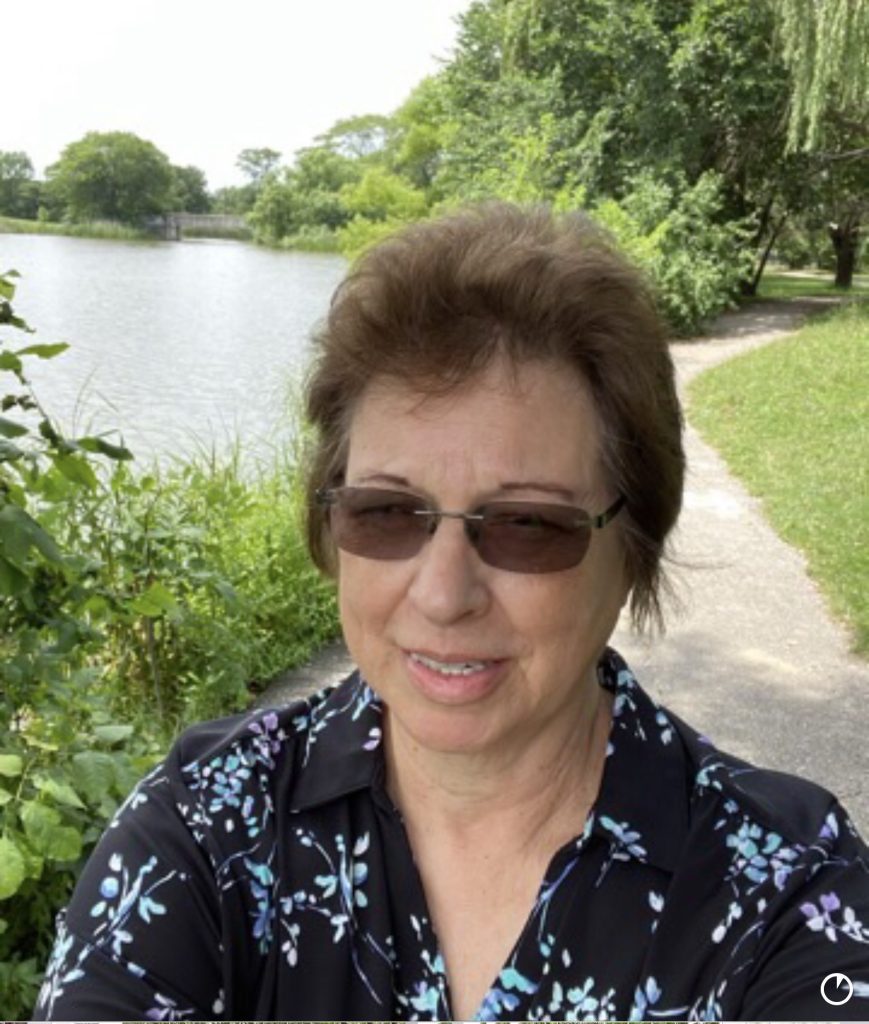
Bingo at St. Clare was something to yell about
Spread the love. Kathy Headley Your correspondent in Chicago Lawn and Marquette Manor 6610 S. Francisco • (773) 776-7778 . Recently I mentioned a bingo fundraiser the Augustinian Young Adults of St. Rita of Cascia Parish were holding. This was their first attempt at a bingo and they put on a really nice event. Held…
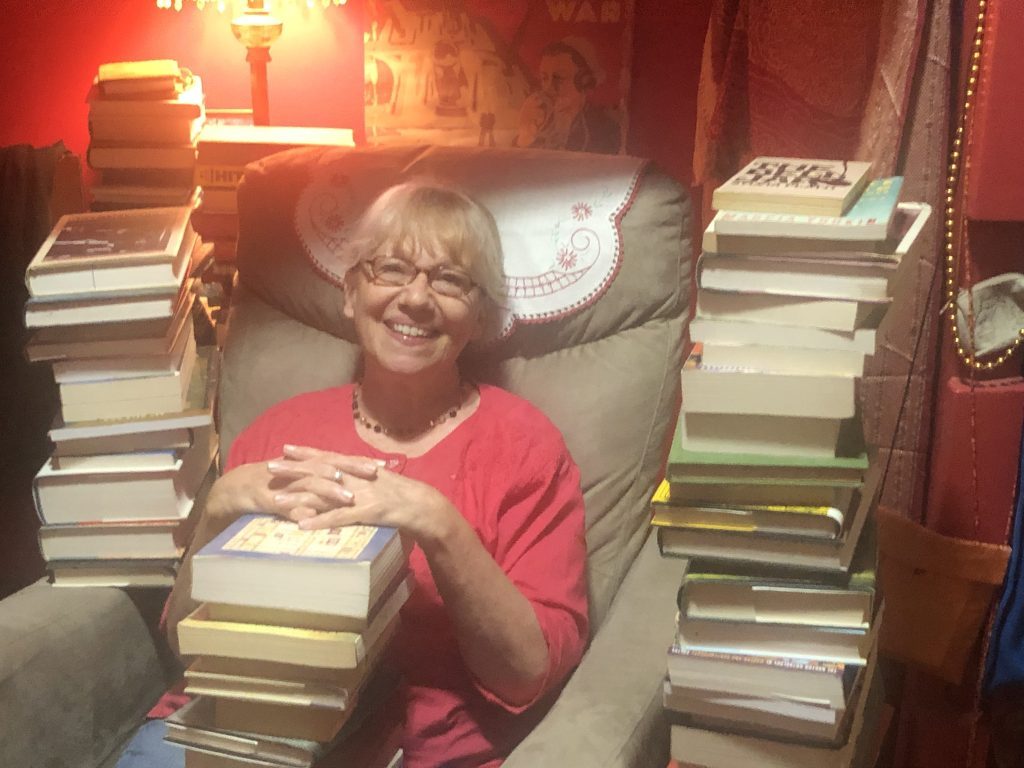
One thing is certain: life goes on
Spread the love. Peggy Zabicki Your correspondent in West Lawn 3633 W. 60th Place • (773) 504-9327 . I get a lot of calls from residents who are discouraged about our neighborhood. There are so many car accidents, shootings and violent crimes being committed in West Lawn and surrounding areas. It certainly is challenging to stay hopeful and positive. Here is a paragraph…

Biz groups battle over names, logos
Spread the love. UBAM, MCC trade barbs . By Dermot Connolly and Tim Hadac The leader of one Midway-area business association is accusing the other of bad faith, and the leader of the other is scratching her head over the dustup. United Business Association of Midway Executive Director Anita Cummings recently claimed that a rival…

Chicago Lawn native’s book is ‘off the hook’
Spread the love. Longtime journalist shares humor columns . By Tim Hadac Nancy (Emerson) Besonen has made a career as a news reporter and humor columnist for a weekly paper in Michigan’s Upper Peninsula. But her roots are in Chicago Lawn, and it showed during a recent conversation. Like most true Southwest Siders, she didn’t…
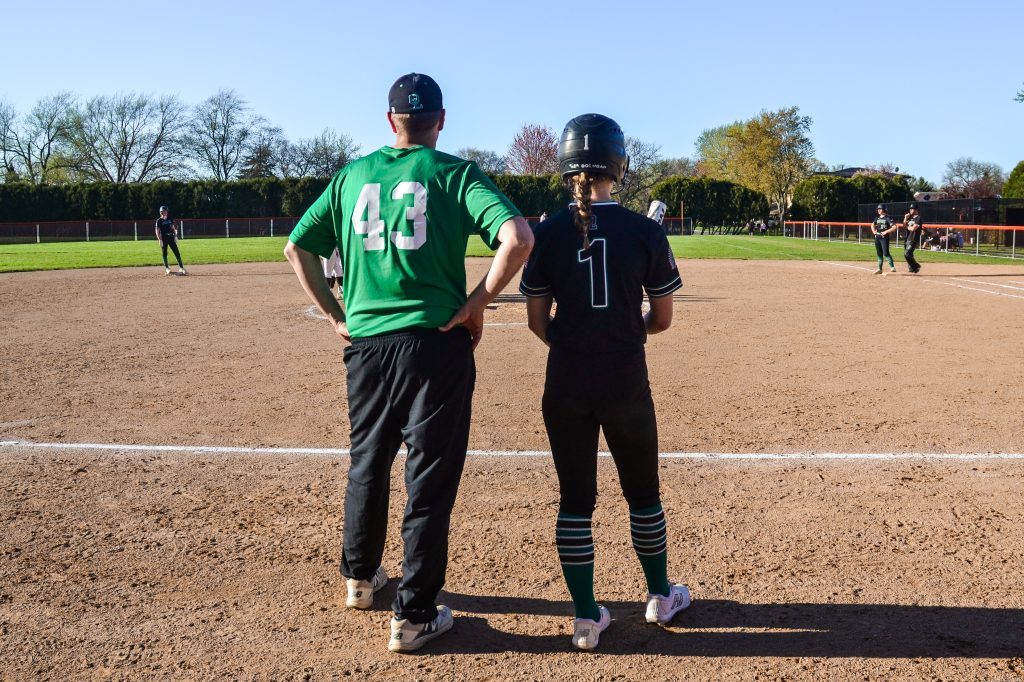
Softball | Oak Lawn’s Kasey Jackson fans 5 in loss to Shepard
Spread the loveBy Xavier Sanchez Correspondent Oak Lawn entered its South Suburban Conference matchup with Shepard having won six of its last seven games. The Astros — even hotter with seven straight victories after beginning the season with three consecutive losses — cooled off the Spartans (8-5, 4-2 SSC) for a day, winning 3-0 behind…

Softball | Shepard blanks Oak Lawn behind CG from Kailey Selvage, 2 RBI from Madison Scapardine
Spread the loveBy Xavier Sanchez Correspondent Temperatures are not the only thing starting to warm up in the Southwest Suburbs. Shepard, which began the season with three consecutive losses, defeated Oak Lawn, 3-0, on April 15 to run its winning streak to seven games. Astros junior pitcher Kailey Selvage tossed a complete-game shutout, striking out…
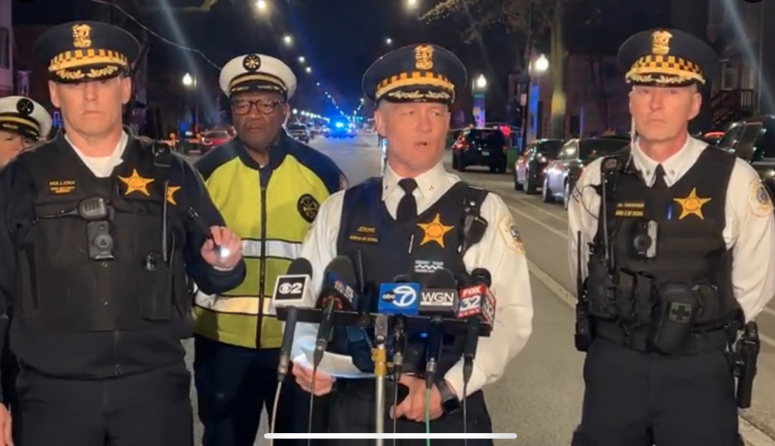
‘Horrific and unacceptable’
Spread the love. Police, neighbors decry shooting at family party . By Tim Hadac Drive-by shootings have become not at all unusual in recent years in Back of the Yards. Some might even call them common. What is still uncommon is for drive-by crimes to injure or even kill young children. But that is exactly…
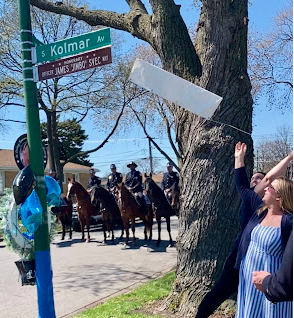
A blue salute in Scottsdale
Spread the love. Family, friends, co-workers and neighbors of the late CPD Officer James R. Svec Jr. –as well as elected and appointed officials– gathered at 77th and Kolmar last Saturday to unveil an honorary street sign saluting him for his sacrifice. Officer Svec died at age 59 in December 2021 from causes related to…






